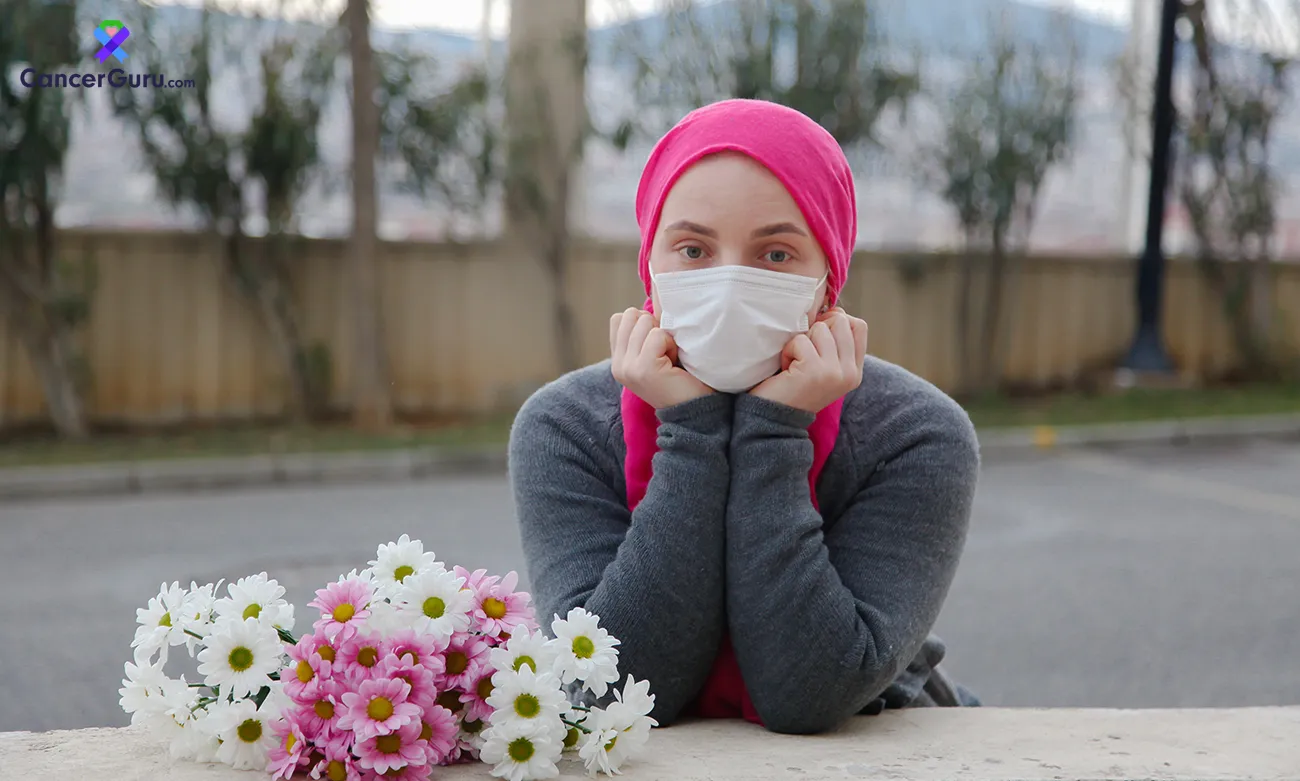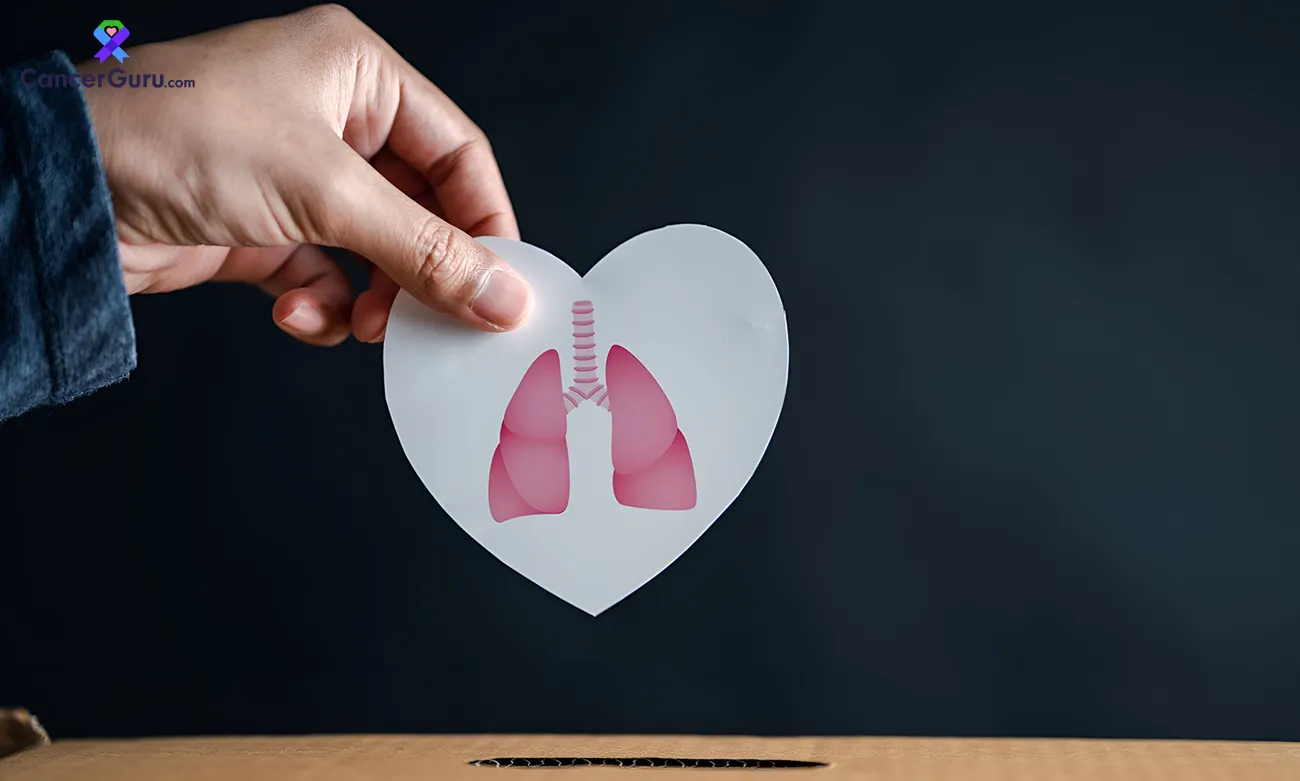- Email: [email protected]
- Contact: +1 (407)581-9000
Caring for the Caregiver: Essential Tips to Avoid Burnout
November 10, 2025

November is recognized as National Family Caregivers Month, during which the caregivers get their due recognition and respect. CancerGuru.com has decided to focus on the caregiver's wellbeing this year, and the ways of acknowledging the burning out problem. Coping with caregiver burnout is a must, as it always negatively impacts both caregivers' health and the quality of care rendered.
In other words, being a care partner can bring joy, but the stress and transformation that come with taking care of someone can deplete one’s emotional, mental and physical resources. It is important to be aware of caregiver burnout and its symptoms to protect your health and give your loved one the best care possible.
What does it mean when we say, “caregiver burnout”?
Caregiver burnout is a term that describes the condition of being utterly drained out i.e. physically, emotionally, and mentally. Sometimes it leads to an alteration of one’s outlook - from a positive and caring attitude to one that is negative and indifferent. A burnout syndrome can be developed by caregivers in the absence of necessary support and/or by going beyond their physical or financial limits.
One common situation involving caregiver burnout can show the following symptoms:
- Fatigue
- Irritable, frustrated or angry
- Sense of despair or being powerless
- Changes in sleeping patterns
- Withdrawal from social activities
Signs of Caregiver Burnout
Burnout does not occur at all at once. It takes its time to set in, and often it will be mistaken for “just being tired” or “having a rough day.” That is why it is important to pay attention to the signs like the ones mentioned below because the silent stress might even change your health for the worse, affect your relationships and ultimately, the quality of care you provide.
Among the signs, physical exhaustion is the most prominent, although these signs may vary depending on the individual:
- Physical exhaustion like tirelessness, sleep has become a difficult task, and headaches are frequent
- Emotional strain is reflected in a large part by anxiety, impatience, and despair, for example.
- Withdrawal manifests as a state where the individual is not able to derive any more enjoyment from activities that previously catered to their needs.
- One's self-care gets completely disregarded: a person gives up physical workouts, refrains from consuming healthy food, and neglects medical check-ups.
- The person feels imprisoned or bitter and has thoughts like "I can't take it any longer" or "I am the only one who has to take care of them."
When these symptoms appear in you, it is already a signal for you to get away from everything and to give priority to your health.
Why Addressing Caregiving Burnout is Important?
By addressing caregiver burnout, not only the caregivers’ health but also the quality of care for the patients and the whole atmosphere of caregiving are improved.
A thirsty cup would not let any drink be made. All people, especially caregivers, should take time off and renew their energy through rest and relaxation. Caregiver's health is the main factor in the situation where the care receiver gets to enjoy continuous love and support.
In case you are doctoring symptoms of caregiver burnout or are just trying to prevent it, the following eight tips are the ones that can assist you:
Tip 1: Accept Help When It’s Offered
A lot of caregivers believe that they are superheroes and try to do everything themselves. But caregiving is still too large a task for one person. If someone offers help by saying "Let me know if you need anything;" do not consider it a nuisance. Instead, let them know what you need in very specific terms:
- Purchasing groceries
- Driving to doctor's visit
- Cooking a meal
- Keeping with your loved one while you take a nap
It Is okay to accept help; remember, it's only a strategy to make things easier rather than taking them lightly.
Tip 2: Work on Realistic Expectations for Yourself
No one can do everything perfectly and you are not an exception. The life of humans is made up of good days and bad days—so be prepared to experience a mixture of smooth and hectic days. Acknowledge your dedication and hard work even in the most challenging times.
Instead of targeting the absolute maximum level of perfection, simply go for "good enough".
- Good enough still cares.
- Good enough is still love.
Tip 3: Take Short, Regular Breaks
Recharging doesn't have to be for a long time like a vacation. It is sufficient to spend a couple of minutes to be productive. Deep breathing, stretching, going outside for a little while or merely sitting down and chilling for some times are the options. Such little breaks during your work hours will help in managing stress by lowering it before it gets to a serious level.
Treat the breaks as part of your maintenance—like getting your car gas filled. Your energy has a maximum and minimum capacity, and breaks are the time when you recharge.
Tip 4: Come Up with a Schedule that Accommodates Time for You
10-20 minutes a day is all it takes to initiate a change. The activity that you choose should be:
- Reading
- Listening to music
- Journaling
- Crafting
- Watching a favorite show
Easy enough to be treated as an appointment. You have earned a time that is just for you—not for sharing, not for being productive, just for you.
Tip 5: Be Your Health’s Best Friend
Health demands are not limited solely to the individual receiving care, but they are also required for you, the caregiver. However, caregivers tend to be the ones who neglect their health the most by doing various things such as skipping meals, ignoring signs and symptoms, or putting off doctor's visits because they are entirely focused on the other person.
You can try to:
- Have your meals at regular intervals (they need not be elaborate)
- Drink enough water
- Do some gentle exercises every day
- Keep up with your medical care
All these things will aid your body in remaining healthy enough for you to look after other people.
Tip 6: Stay Connected with Friends and the Community
Caregiving can be an extremely lonely job. You might not have a very lively social life but staying in touch remains important. A couple of voice messages, a quick call, or even just a chat with a neighbor can clarify your status of being outside of caregiving.
If time and the situation allow, it would be a nice idea to join a caregiver support group either the one in your locality or on the internet. It will be such comfort to talk to people who are aware of your suffering even though it is at times difficult to articulate.
Tip 7: Learn to Say “No” Without Guilt
Setting boundaries is absolutely allowed. You are not obliged to agree to all demands that come from your family, friends, and even the person who is under your care. Your limitations are important, too.
To refuse does not mean to be indifferent by the other party.
On the opposite side, it is to protect your own resources and to be the one who takes care of the patient again, but this time with patience and love instead of with the working through and hate.
Tip 8: Contact Professionals for Help When Necessary
The emotional weight of being a caregiver can become so overwhelming at times that it is just not possible for one to carry it alone. The professionals who are trained in such instances- therapists, counselors, and social workers- will help you find the right methods to cope, to process your feelings, and to stay strong.
Likewise, there are community programs that offer temporary care or in-home support which allows you to take a break. Reaching for assistance is not a sign of weakness—it is a demonstration of strength.
Conclusion
Taking care of someone is an act of love, however love does not imply that one has to lose their own well-being, the caregiver must be the first one to be recharged. You have the right to take a break, you have the right to get help, you have the right to get pampered, just like the patient.
Taking good care of yourself is not a letting go of your responsibility but rather granting it a new life.
You are not the sole one who is having a hard time with this matter. In addition, it does not have to be your burden alone.
FAQs About Caregiver Burnout
1. What causes caregiver burnout?
Burnout occurs when caregivers are doing it for long periods and there’s no enough rest, support or they get no time for themselves. The emotional and physical demands mixed up will finally come to a point that the caregivers will be totally exhausted.
2. How can I tell if I’m experiencing burnout?
The signs that one is going through this situation are a fatiguing feeling, irritability, insomnia, overwhelmed feeling, socially withdrawing, or one losing interest in things that he/she used to enjoy doing. If you feel that occupying yourself with someone is so draining most days then you might be burnt out.
3. Why do caregivers feel guilty taking breaks?
The guilt burden falls upon caregivers who consider it their obligation to take full responsibility for the well-being of their loved ones and thus they think that they should always be on call. Nevertheless, breaks are essential - taking care of yourself is what enables you to continue taking care of others.
4. What if I don’t have family or friends to help?
You still got options, though. Look for community support programs, respite care, home health aides, volunteer groups, or caregiver support non-profits. Social workers at hospitals can introduce you to the local resources.
5. Can caregiver burnout be reversed?
Yes, it can happen! Rest, responsibility sharing, emotional support, and the setting of healthy boundaries will empower the caregivers to reload their energy and balance. Therefore, burnout should not be treated as a signal of defeat, but a signal that your needs count.
Ratings and reviews
-
Nice (10 Nov 2025) -
Nice (10 Nov 2025)










